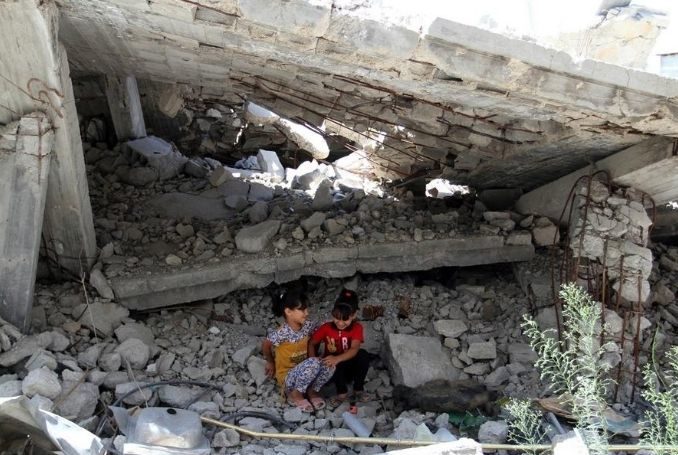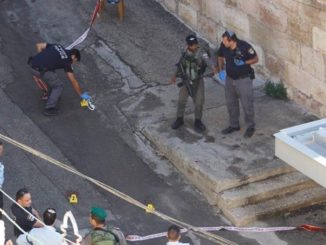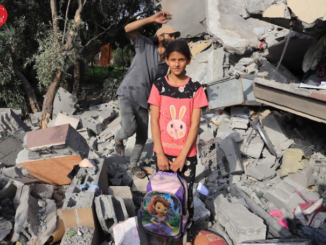
Israeli Major General Gershon HaCohen, who commanded the 36th Division of the Israeli army during the so-called ‘disengagement’ from Gaza said that the decision by late Israeli Prime Minister Ariel Sharon was “an absolute mistake.”
4,000 Workers Lost their Jobs in Gaza during COVID-19 Pandemic https://t.co/dkbRXiwODH
— Joe Catron
? (@jncatron) July 20, 2020
HaCohen told the Israeli rightwing newspaper, the Jerusalem Post that he was “absolutely aware that the whole idea would lead to catastrophe,” referring to Hamas and other Palestinian groups’ growing resistance in the besieged Gaza Strip.
The Israeli paper interviewed HaCohen to commemorate the 15th anniversary of the Israeli decision to redeploy its forces around Gaza in August 2005. An estimated 8,500 illegal Jewish settlers were moved from the center of Gaza to illegal Jewish settlements elsewhere in the occupied Palestinian territories.
Newly-Released Data Refutes Claims #Israel Is Easing Gaza Siege https://t.co/TuxIkXN1CY via @PalestineChron pic.twitter.com/atITIjP3TN
— @palestinechron (@PalestineChron) July 22, 2019
“I had two choices, to disobey and retire or to follow and do it as per my own belief and vision,” HaCohen said.
“Hamas could not have made that arsenal before the disengagement,” he told the newspaper, adding that “there would have been fewer rocket attacks because Hamas now has that strategic capability that they didn’t have before.”
Although Israel claims to have left Gaza, it only redeployed its forces outside population centers, positioning them instead at the outskirts of the Gaza Strip, where they have imposed a tight siege on the impoverished region ever since.
‘Fighter of #Return’: Thoughts on Razan al-Najjar and Nikki #Haley https://t.co/7k7EreaLtY via @PalestineChron pic.twitter.com/83zCKWcUxv
— @palestinechron (@PalestineChron) July 2, 2018
Thousands of Gazans have been killed since Israel’s ‘disengagement’, as a result of Israeli wars, most notably in 2008-9, 2012 and 2014.
Palestinians have used various forms of resistance to end the 14-year-long Israeli siege to no avail. In March 2018, thousands of Palestinians protested peacefully near the fence separating Gaza from Israel. In response, Israel deployed hundreds of snipers that killed over 300 Palestinians, including children, journalists and medics over the course of one year. Thousands more were wounded and maimed by the Israeli army.
HaCohen, however, claims that the decision was bad for Israel since it allowed various Palestinian resistance groups to organize against the Israeli army.
Inconclusive Investigations and Psychological Trauma Cultivate #Israel’s Impunity https://t.co/t6ynPv6plL via @PalestineChron pic.twitter.com/8AjkT19b8J
— @palestinechron (@PalestineChron) July 28, 2020
“Disengagement was an absolute mistake but I thank God for this stupid mistake because that way we can learn,” he said.
“The Israeli idea was that we would get international legitimacy to fight against terror, in every way, but since (Operation) Cast Lead (in 2008-9) we have realized that our dream of international legitimacy is an illusion.”
International Law, however still recognizes Gaza as part of the occupied Palestinian territories despite Israel’s decision to redeploy its forces in and outside the region.
Although the region is relatively very small – 365 sq. km – Israel has designated parts of Gaza as no-go areas and often opens fire at Palestinian farmers as they try to harvest their crops.
Gaza farmers began harvesting their grapes, although the vast majority will be sold in domestic markets. Since the Israeli siege began Gaza agriculture has suffered as a result of restrictions imposed on Palestinian exports. (Photos: Fawzi Mahmoud, The Palestine Chronicle) pic.twitter.com/HScKVTg6Te
— @palestinechron (@PalestineChron) July 28, 2020
Meanwhile, the Israeli navy prevents Palestinian fishermen from venturing out beyond a very small stretch of water, and often opens fire and sinks boats that disobey orders.
There are approximately 2 million people living in Gaza. In 2012, the United Nations had said that the region will become uninhabitable in 2020.
(The Palestine Chronicle)








